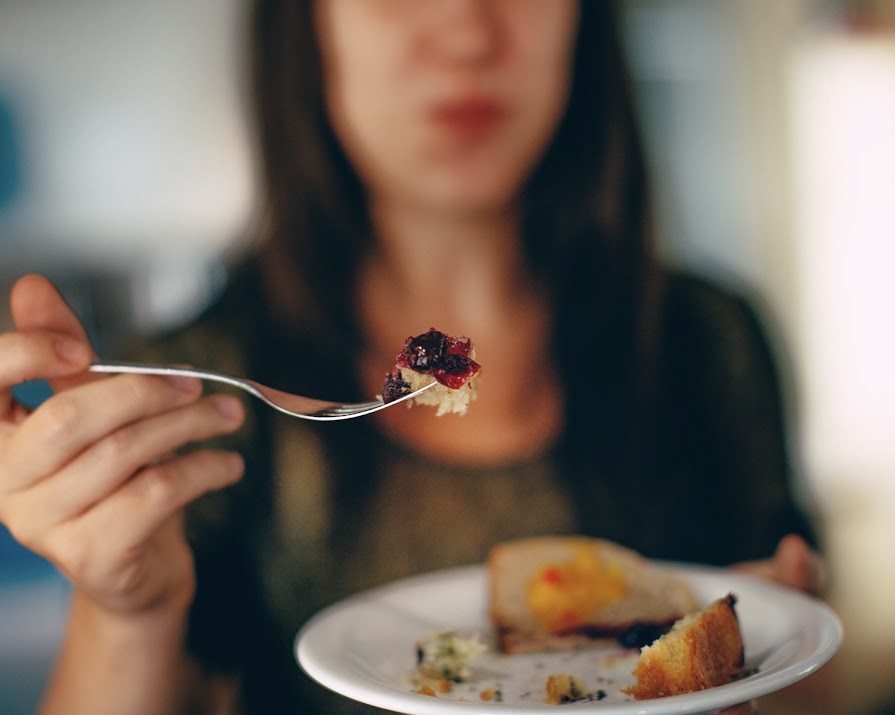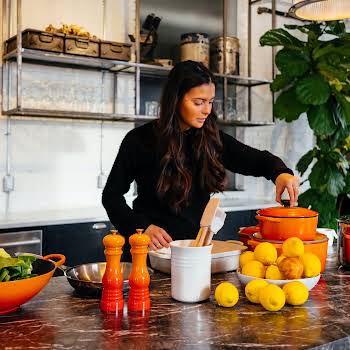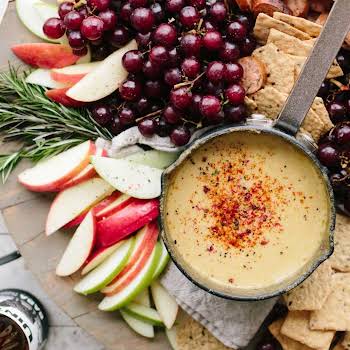
By Amanda Cassidy
10th Sep 2023
10th Sep 2023
Do you find yourself opening the fridge when you’re feeling down or upset? Are you more likely to turn to unhealthy or high fat options when you are experiencing negative emotions?
Finding comfort in food is common, and it’s part of a practice called emotional eating. It’s an issue that affects both sexes – but according to different studies, emotional eating is more common in women.
Negative emotions may lead to a feeling of emptiness or an emotional void. Food is believed to be a way to fill that void and create a false feeling of temporary wholeness.
For me, after a long day dealing with the children’s needs, I sometimes turn to food as the way to satiate my own needs and go overboard in the process.
We spoke to celebrity nutritionist Kim Pearson about the best way to tackle such food habits.
Food as comfort
She says it’s a good idea to consider how you deal with uncomfortable feelings when they arise.
“Historically, I had three default coping mechanisms: Eat large amounts of pasta or chocolate or other carbohydrate or sugar-heavy foods. Find a friend who was happy to drink too much wine with me. Throw myself into work.
None of these helped me to acknowledge my pain and work through my feelings. Instead, what happens when we do this is feelings get buried, often to remerge in a different situation later down the line.
Most of us haven’t been encouraged to sit with uncomfortable feelings. We haven’t been taught how to process them,” explains the London-based nutritionist.
Ingrained
“We’ve been encouraged to cheer up, told not to cry and to put on a brave face while being guided towards food and alcohol as coping mechanisms.
How many times have we joked about wine as a cure for all ills? And not just by peers, but by corporations with vested interests too. It’s no wonder it’s so ingrained in us.”
Pearson says she has had many conversations with clients over the years who admit they find themselves turning to food and drink when uncomfortable feelings arise.
“Not only has this sabotaged their attempts to lose weight or maintain a weight they’re happy at, it’s prevented them from honouring their feelings and working through them,” says Pearson.
“Life can be tough but it’s often the times that challenge us most that gift us with the greatest lessons and opportunities for growth.
So how do we honour our feelings and heal from pain?
The answer to this is complex, but here are a few things to consider.
Firstly, can you identify times in your life when uncomfortable feelings lead you to turn to food, drink, or distractions of other kinds? And are there any reoccurring themes?”
Kim also says to make yourself aware of what triggers those feelings and where they may stem from.
“If nothing is immediately apparent, practice observing yourself over time to see if anything comes up for you.”
When uncomfortable feelings arise there are a few things you can consider doing instead of turning to your distraction of choice, according to the nutritionist.
Distraction
“They all involve turning towards the feeling, sitting with it and exploring it more deeply, rather than burying it. You could consider journaling or writing down what’s coming up for you. You could speak with a friend who can hold space for you without interrupting or offering ‘helpful’ solutions. Or you could simply sit and meditate on it.
I meditate, journal, and speak with friends. I’m also a big advocate for therapy. I have had many hours of it myself. Having a professional to support you in facing your discomfort or trauma can be truly life-changing.”
Compassion
Do I ever comfort eat? Sure, occasionally I’ll have a bowl of medicinal pasta. But the difference now is that it doesn’t turn into a binge and I’m not stuffing down my feelings with every mouthful.”
We all have stuff, it’s part of the human experience. So be kind to yourself when things get challenging and don’t hesitate to seek help if you need to.
This article was originally published in September 2022.





















